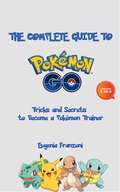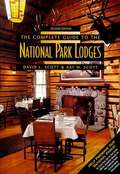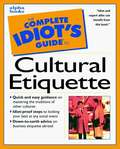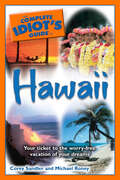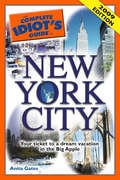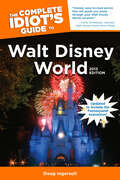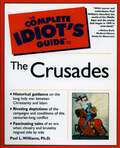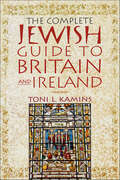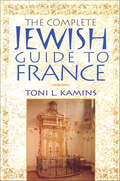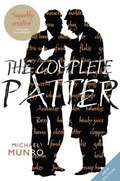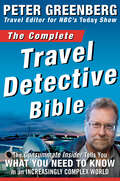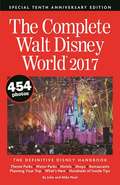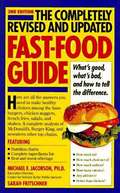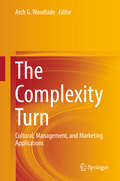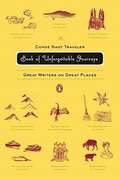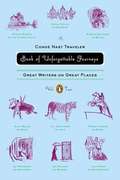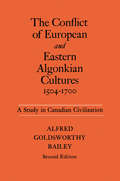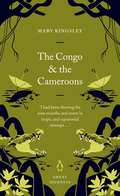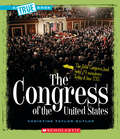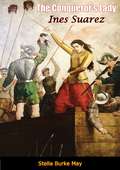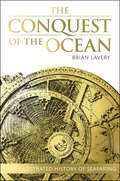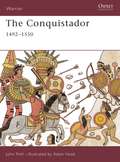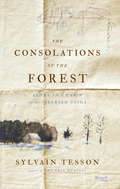- Table View
- List View
The Complete Guide to Pokémon GO: Tricks and Secrets to Become a Pokémon Trainer
by Eugenia FranzoniThe definitive guide to the game that has conquered the world. Do you want to start playing Pokémon GO? In this guide you will find everything you will need to become a Pokémon trainer quickly and easily, with lots of screenshots! You will find how to install, how to understand Pokémon details, how to evolve and power up, fight in gyms and much more! Do you already play? Are you tired of finding old or imprecise info, referring to older versions? In this guide you will only find updated info and tricks, tested on the latest version. You will find : 0.39.0 (for Android) and version 1.9.0 (for iOS). In this guide you will find: Introduction - On which devices can I install it? - How to install on Android - How to install from APK on Android - How to install on iPad/iPhone Let’s start - Set up your account - Customize your avatar - Your first Pokémon - How to choose Pikachu as first Pokémon How to catch Pokémons - How to find other Pokémons? The map - Poké Stops - Gyms - How to find Poké Stops and Gyms For your safety - Submit problems in Poké Stops and Gyms - Bans Your Pokémons - Pokémon details - Rename - Power up - Evolve – Evolving Eevees - Appraise: When to Evolve and Power Up – Messages for Team Mystic – Messages for Team Instinct – Messages for Team Valor - Transfer to Professor - Favorites - The Pokédex Eggs - Some tricks to hatch eggs quicker - What’s in eggs Fighting - Choosing a team - Gym levels - Conquer a grey gym - Fighting in a gym - Training - Fighting techniques - Types - Choose which Pokémons to use in fights - Bonus for Pokémons in gyms R
The Complete Guide to the National Park Lodges
by David L. Scott Kay Woelfel ScottFrom Alaska's Denali National Park Hotel to the lodges of Yellowstone National Park in Wyoming, this guide to US National Park lodges by a peripatetic Georgia accounting professor-school principal couple provides lodge descriptions, contact information, maps, and b&w illustrations. Lacks references. Annotation c. Book News, Inc., Portland, OR (booknews.com)
The Complete Idiot's Guide to Cultural Etiquette
by Carol TurkingtonSurviving in a foreign country may sometimes seem a bit like playing a game of Monopoly without knowing the rules-Park Place, Marvin Gardens, all those railroads-and what's the deal with that little iron, anyway? In much the same way, making sense of other cultures without any preparation can be a frustrating and downright difficult undertaking if you don't know the score. When you're in a foreign country, the signs don't make sense, buses operate under a set of alien rules, and how do you decipher the body language and intent of the natives when "no" seems to mean "yes" and people keep giving you shocked looks for behavior that wouldn't raise an eyebrow back home? This book will help guide you through the mystifying minefield of international culture-when to do the right thing, when to avoid the wrong thing, and how to understand the difference. This book gives an overview of each country, discussing how to dress, eat, entertain (and be entertained!), tip (or not tip!), speak, negotiate, barter, and travel into and out of the countries of our world. It also informs you how to avoid problems of health and safety, and who to call if you've plunged in recklessly anyway and gotten into trouble. In short, it's a handy sidekick to keep you out of trouble, something you can turn to when you've kissed instead of bowed, or shaken instead of stirred. Whether you're leaving the safe haven of your own country for business or pleasure, the more you learn about other cultures, the better you will be able to decipher foreign attitudes and actions, making you a more sophisticated, sensitive, and successful ambassador.
The Complete Idiot's Guide to Hawaii: Your Ticket to the Worry-Free Vacation of Your Dreams
by Corey Sandler Michael RoneyAn indispensable resource for the perfect island getaway This reader-friendly guide to the beauty and wonder of the nation&’s 50th state features everything you need to know before visiting Oahu, Maui, the Big Island, Kauai, Molokai, and Lana&’i. Includes one-island and multiple-island itineraries, as well as ultimate itineraries for singles, families, couples looking for a romantic getaway, adventure seekers, and luxury lovers.• Special visual icons indicating hotels, restaurants, and sights that can&’t be missed—as well as those that are best avoided—make navigating the book simple• Features eight pages of beautiful full-color Hawaiian scenery
The Complete Idiot's Guide to New York City: Your Ticket to a Dream Vacation in the Big Apple
by Anita GatesPlan a visit to the city that never sleeps… without losing any sleep!New York continues to be one of the top tourist destinations in the world—with more than 43 million visitors in 2006 alone.This book dispels the anxiety of planning a trip to such an enormously busy and exciting destination. Readers are given practical advice based on the kind of trip they are looking for, the length of their stay, and what they want to see. The Complete Idiot&’s Guide® to New York City provides:• A reader-friendly list of visual icons and symbols that make navigating the book a breeze• Fifty pages of itineraries based on days in town, areas of the city, and Special interests like romantic, family fun, single in the city, and taking it easy• An eight-page color insert that captures the magic of the Big Apple
The Complete Idiot's Guide to Running a Bed & Breakfast
by Park Davis Susannah CraigYou&’re no idiot, of course. You&’ve had the pleasure of staying at a few bed and breakfasts, and you&’d love to open a charming inn of your own. But when you think about what it takes to get a business up and running, you want to hang the Do Not Disturb sign. This is your wake-up call! The Complete Idiot&’s Guide® to Running a Bed and Breakfast will show you it can be easy and fun—and a great way to meet new people and make money. In this Complete Idiot&’s Guide®, you get: • Useful insights into the booming B&B industry. • A simple test to help you decide if you have what it takes to succeed in the B & B business. • Idiot-proof guidelines for converting a house into a B&B. • Expert advice on accounting and business issues. • An insider's look at the new trends in guest services.
The Complete Idiot's Guide to Walt Disney World, 2013 Edition
by Doug IngersollWalt Disney World is the ultimate family vacation, plus a fun getaway for couples, too. However, there is so much to see and do that it takes careful planning to choose the right attractions, accommodations, meals, and other entertainment to keep everyone happy without blowing the budget. The Complete Idiot's Guide® to Walt Disney World has expert advice and information for visitors of any age and stage: families with very young children, middle schoolers, and teens as well as the couples and adults of all ages who visit WDW every day. In it, you get: Tools for pre-trip planning, including scheduling the trip, booking accommodations, and selecting park tickets. Tips for getting the most out of Disney dining dollars, including character meals. Detailed reviews of the Magic Kingdom, Epcot, Hollywood Studios, and the Animal Kingdom, including appropriate attractions by age group. Detailed coverage and maps of the exciting expansion to Fantasyland, including Beast's Castle. Insider information on exploring the water parks, golf courses, nightclubs, shops, and other Disney attractions. Extensive itineraries, maps, and photos to help guests make the most of their Disney adventure.
The Complete Idiot's Guide to the Crusades
by Paul WilliamsYou&’re no idiot, of course. You know the Crusades were a war between Christians and Muslims for control of the Holy Land. However, these bloody conflicts raged over centuries, under changing circumstances, making the whole story difficult to follow. You don&’t have to don armor and cross deserts to relive the Crusades! The Complete Idiot&’s Guide® to the Crusades shows you why these wars began, why they continued for so long, and how their impact on the world still resonates. This Complete Idiot&’s Guide® gives you:• An introduction to the Dark Ages and the Renaissance, and why Pope Urban II would grant absolution to anyone who reclaimed the Holy Land for Christianity.• The origins of such Holy Orders as the Knights Templar, the Hospitallers, and the Teutonic Knights—and the roles they played during the Crusades.• The creation of such items as chastity belts, razors, stained glass, perfume, the crossbow, the compass, and public latrines.• The nobles—Richard the Lion Heart, Louis IX, and Frederick II—and the Muslim leaders—Saladin, Zengi, and Nur ed-Din—who held the lives of thousands in their hands.
The Complete Jewish Guide to Britain and Ireland
by Toni L. KaminsThe Complete Jewish guide to Britain and Ireland is the only resource for everything you need to know to embark on a trip through Jewish Great Britain. Travel writer and journalist Toni Kamins catalogs information on well-known sights and little-known treasures as varied as the beautiful Moorish West London Synagogue, the Manchester Mikveh, the lost Jewish Cemeteries of Glasgow, and the Jewish Museum of Dublin, as well as transportation, lodging information, and places to buy kosher food. Selected photographs and maps fill out the picture.Kamins also recounts nearly one thousand years of related history-from the first appearance of Jews on the British Isles following the Norman Conquest, through the Crusades and the Expulsion, to the Restoration and up to the present day. She focuses on the turbulent and captivating histories of England, Scotland, and Ireland through the prism of the Jewish experience. The Complete Jewish Guide to Britain and Ireland has everything you will need to make your trip a success-and put it into a historical context that will make it even more worthwhile.
The Complete Jewish Guide to France
by Toni L. KaminsThe Complete Jewish Guide to France is the only resource you need to embark on a trip through Jewish France. Travel writer and journalist Toni L. Kamins catalogs information on well-known sights and little-known treasures, such as the Marais district (Paris's celebrated Jewish neighborhood), ancient ghettos, beautiful old synagogues around the country, and many other places. She includes information on transportation and lodging, plus hundreds of places to buy kosher food. Selected photographs and maps fill out the picture. Kamins also recounts the nearly two thousand years of French-Jewish history beginning with evidence that Jews may have lived in France as early as the first century, and continuing right up to the present day.The Complete Jewish Guide to France has everything you need to know to make your trip to France a success-and to put it into a historical context that will make it even more worthwhile.
The Complete Patter
by Michael MunroA highly entertaining A-to-Z guide to the unique dialect of the city of Glasgow. Do you have a baldy clue as to who the bears and junglies are? Puzzled by the thought of some cheekywatter from your cargo? Fancy a day out at Fort Weetabix? Or would you rather settle down with some swedgers? After all, you don't want to be a stank dodger. Confused? You need this book! Michael Munro has won the eternal gratitude of Glaswegians for his efforts in popularizing their city&’s dialect, universally known as the &“patter.&” This book is the most extensive collection of this rich and expressive language ever made. Often hilarious, sometimes coarse (but never dull!), the patter is the key to understanding this Scottish city and its inhabitants.
The Complete Travel Detective Bible: The Consummate Insider Tells You What You Need to Know in an Increasingly Comple x World
by Peter GreenbergThis ultimate "physician's desk reference" for travelers addresses the questions, anxieties, concerns, and desire for essential information that are common to seasoned and novice travelers alike. Peter Greenberg, best-selling author, trusted Today show travel editor, and the man that writer Paul Theroux calls "the liberator and defender of the traveling public," offers an encyclopedic look at every aspect of the travel process, both domestically and internationally, from the true definition of travel terms to in-depth explanations of how things really work. Do you want to know which airline seats are the best and worst? How you can vacation in a lighthouse, a monastery, or even a converted prison? Which countries require you to get visas before you visit? Or won't let you in even if you have a passport? Which airlines are the worst "bumping" offenders? How you can avoid hidden fees? The Complete Travel Detective Bible offers up answers to these questions and much more. Everything is cross-referenced and each chapter is filled with useful charts, lists, and diagrams, making for an easily accessible format. Greenberg, who has been to more than 146 countries, is an expert without equal at outplaying the travel industry at its own games, securing the best fares, accommodations, and service at the lowest possible prices. He shares every one of these hard-won, ingenious insider secrets in this book, making The Complete Travel Detective Bible the ultimate word on travel today.
The Complete Walt Disney World 2017
by Julie Neal Mike NealFilled with the most detailed information ever published about Walt Disney World, this award-winning guidebook combines a thorough description of everything Disney has to offer with a cornucopia of advice and insight to help you enjoy it.
The Completely Revised and Updated Fast-Food Guide
by Michael F. Jacobson Sarah FritschnerCompletely revised and updated, this guide is a must for people who care about their kids, their waistlines, and their arteries.
The Complexity Turn: Cultural, Management, and Marketing Applications
by Arch G. WoodsideThis book takes the reader beyond net effects and main and interaction effects thinking and methods. Complexity theory includes the tenet that recipes are more important than ingredients—any one antecedent (X) condition is insufficient for a consistent outcome (Y) (e.g., success or failure) even though the presence of certain antecedents may be necessary. A second tenet: modeling contrarian cases is useful because a high or low score for any given antecedent condition (X) associates with a high Y, low Y, and is irrelevant for high/low Y in some recipes in the same data set. Third tenet: equifinality happens—several recipes indicate high/low outcomes.
The Conde Nast Traveler Book of Unforgettable Journeys
by Various Klara GlowczewskaFrom the #1 travel magazine in the country, a collection of travel tales from some of today's finest writers Travel writing maintains its seemingly endless popularity, and this volume offers a particularly transporting body of work, pairing exotic locales with writers of the highest caliber: Russell Banks writes on the Everglades, Francine Prose explores the secrets of Prague, Robert Hughes takes us on a tour of Italy, and more. From the most beautiful gardens to visit in Japan to the best free things to do in Provence, this book is as enlightening as it is entertaining. Whether off to the other side of the globe or to their favorite reading chair, wanderers of every sort will find this book truly indispensable. Other featured writers and places include: Nik Cohn on Savannah Philip Gourevitch on Tanzania Shirley Hazzard on Capri Pico Iyer on Iceland and Ethiopia Nicole Krauss on Japan Suketu Mehta on the Himalayas Edna O'Brien on Bath Patricia Storace on Provence and Athens James Truman on Iran Gregor Von Rezzori on Romania Edmund White on Jordan Simon Winchester on Mount Pinatubo William Dalrymple on his pilgrimage to Santiago John Julius Norwich on the Vatican Jan Morris on Hawaii
The Conde Nast Traveler Book of Unforgettable Journeys: Volume II
by Klara GlowczewskaAnother spellbinding trip around the globe with some of today's most celebrated writers and journalists Condé Nast Traveler is the preeminent travel magazine in the United States, boasting a readership of 3.5 million. This second collection of the award-winning magazine's best travel writings, includes essays by luminaries such as, Robert Hughes, Russell Banks, E. L. Doctorow, André Aciman, Pico Iyer, and Edna O'Brien.As the world becomes smaller and ever more accessible, interest in travel writing is only growing greater. So whether readers are preparing for their own journeys or just indulging in an armchair adventure, this new volume of The Condé Nast Traveler Book of Unforgettable Journeys will open their eyes to the world.
The Conflict of European and Eastern Algonkian Cultures, 1505-1700: 2nd Edition
by A. G. BaileyThe movement of one cultural group into the territory of another has always produced conflict: a conflict which is resolved at times by the obliteration of one group, but more often by a gradual fusion of elements drawn from both. This study examines the conflict between the Europeans and the Indians precipitated by the arrival of the French in the New World. The Indians were necessarily affected by the fur trade and the religious and social development of New France, and the meeting of contrary cultures resulted in most cases in the obliteration of that of the Indian. However, a fusion of Indian and European elements sometimes occurred, resulting in the birth of a 'Canadian' culture. The process has been repeated with the immigration of every new cultural group to Canada. This study analyses the conflict and traces the fusion of Canadian culture in its initial stage. First published in 1937, the book has proved an importance contribution to an area of early Canadian history which has been receiving renewed attention. This edition contains the original text with the addition of an index and a new chapter appraising some of the leading developments of the past few years.
The Congo and the Cameroons (Great Journeys Ser.)
by Mary KingsleyContemptuous of Europe's 'civilising mission' in Africa, Mary Kingsley's (1862-1900) extraordinary journeys through tropical west Africa are a remarkable record, both of a world which has vanished and of a writer and explorer of immense bravery, wit and humanity. Paddling through mangrove swamps, fending off crocodiles, climbing Mount Cameroon, Kingsley is both admirable and funny.Great Journeys allows readers to travel both around the planet and back through the centuries – but also back into ideas and worlds frightening, ruthless and cruel in different ways from our own. Few reading experiences can begin to match that of engaging with writers who saw astounding things: Great civilisations, walls of ice, violent and implacable jungles, deserts and mountains, multitudes of birds and flowers new to science. Reading these books is to see the world afresh, to rediscover a time when many cultures were quite strange to each other, where legends and stories were treated as facts and in which so much was still to be discovered.
The Congress of the United States (A True Book (Relaunch))
by Christine Taylor-ButlerLearn the details of the Legislative Branch of governement.A True Book: American History series allows readers to experience the earliest moments in American history and to discover how these moments helped shape the country that it is today. This series includes an age appropriate (grades 3-5) introduction to curriculum-relevant subjects and a robust resource section that encourages independent study.This book describes the legislative branch of the United States government, and discusses each of its two parts, how it works, its origins, and notable events in its history, including impeachments and declarations of war.
The Conqueror's Lady: Ines Suarez
by Stella Burke MayFascinating biography of Spanish Conquistador, Ines Suarez recounting her life and adventures in South America.“On a morning in January, 1540, an army of one hundred and seventy Spanish soldiers, commanded by Pedro de Valdivia, departed from Cuzco, Peru, to conquer the land called Chile.One Spanish woman accompanied them. Her name was Ines Suarez.More than a year later, the gaunt remnants of that little army clambered up the solitary rock that the Indians called Huelen (Sorrow) and which today is known as the Cerro Santa Lucia, and took possession of Chile in the name of God and of Charles the Fifth, of Spain.”—Introduction
The Conquest of the Ocean: An Illustrated History of Seafaring (DK Short Histories)
by Brian LaveryA captivating tale spanning 5,000 years of the oceans' history, The Conquest of the Ocean tells the stories of the remarkable individuals who sailed seas, for trade, to conquer new lands, to explore the unknown. From the early Polynesians to the first circumnavigations by the Portuguese and the British, these are awe-inspiring tales of epic sea voyages involving great feats of seamanship, navigation, endurance, and ingenuity. Explore the lives and maritime adventures, many with first-person narratives of land seekers and globe charters such as Christopher Columbus, Captain James Cook, and Vitus Bering.
The Conquistador
by Adam Hook John PohlMany accounts portray the conquest of the New World as a remarkable military achievement, with Cortés' vastly outnumbered but better armed Spaniards defeating hordes of superstitious savages. However, the reality of these events is far more complex and no less significant. The first Conquistadors who had sailed in search of prosperity, inspired by dreams of unlimited riches, soon became disillusioned and restless. With disease rampant, resources exhausted, and the Caribbean populations dwindling, they had little alternative but to find new territories and peoples to exploit. This title shows how, bolstered by influxes of war-hardened veterans from Europe and an army of over 30,000 allied Indian troops, they came to rely on and perfect what they knew best - killing for profit, and without mercy.
The Consolations of the Forest
by Linda Coverdale Sylvain TessonA meditation on escaping the chaos of modern life and rediscovering the luxury of solitude. Winner of the Prix Médicis for nonfiction, The Consolations of the Forest is a Thoreau-esque quest to find solace, taken to the extreme. No stranger to inhospitable places, Sylvain Tesson exiles himself to a wooden cabin on Siberia's Lake Baikal, a full day's hike from any "neighbor," with his thoughts, his books, a couple of dogs, and many bottles of vodka for company. Writing from February to July, he shares his deep appreciation for the harsh but beautiful land, the resilient men and women who populate it, and the bizarre and tragic history that has given Siberia an almost mythological place in the imagination. Rich with observation, introspection, and the good humor necessary to laugh at his own folly, Tesson's memoir is about the ultimate freedom of owning your own time. Only in the hands of a gifted storyteller can an experiment in isolation become an exceptional adventure accessible to all. By recording his impressions in the face of silence, his struggles in a hostile environment, his hopes, doubts, and moments of pure joy in communion with nature, Tesson makes a decidedly out-of-the-ordinary experience relatable. The awe and joy are contagious, and one comes away with the comforting knowledge that "as long as there is a cabin deep in the woods, nothing is completely lost."
